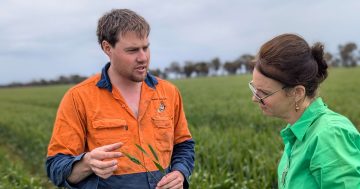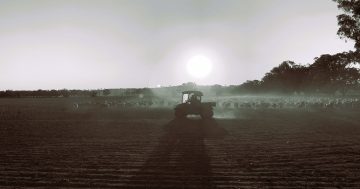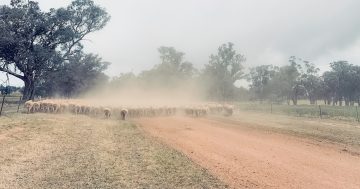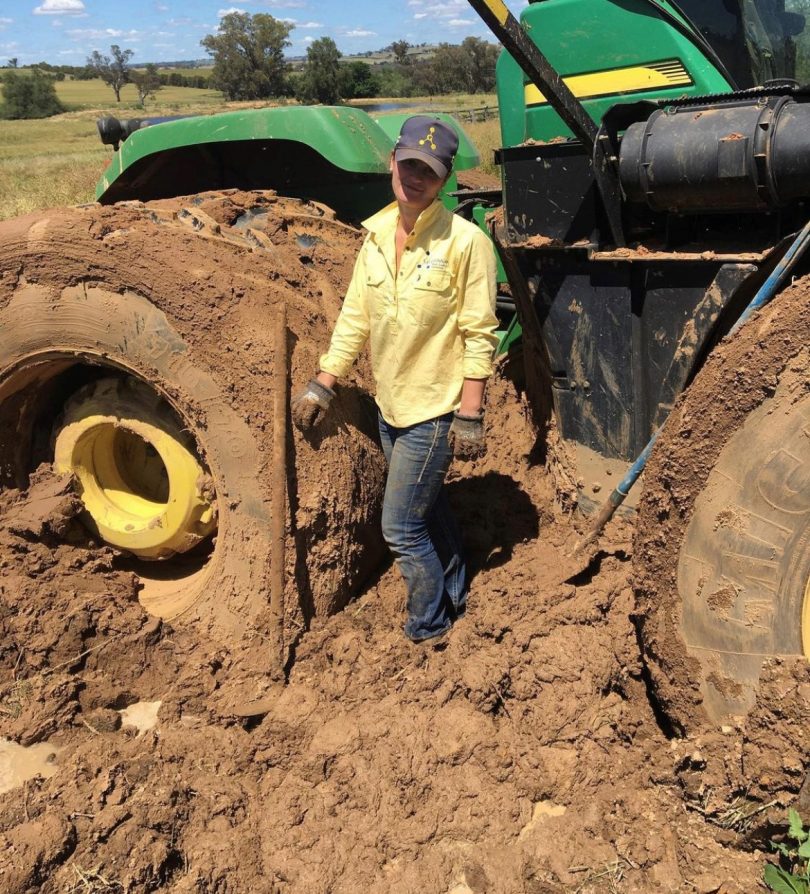
An unimpressed Lucy Hayes knee deep in mud near Young, a result of trying to extract a windrower from a canola paddock. Photo: Anna Hayes.
Farmers in the NSW South West Slopes are finding themselves knee deep in mud surrounded by a full armoury of chains and 500-plus horsepower heavy machinery as they heave their way through the first weeks of the 2021 harvest.
The year of good rain that produced lavish crops overshot the rain gauge too late in a mild spring to allow many western South West Slopes grain and oilseed producers a clean sweep of their crops as they battle delays due to wet conditions.
In some instances way west, where the land lays flat – a vast plain known as The Bland – entire crops are underwater, while other less impacted farmers in the undulating granite slopes further east, near Young and Cootamundra, have simply left sections of canola upright until the ground dries out.
But amid the talk of the weather, the bush telegraph is humming with unexaggerated stories of sensational tractor-defying bogs where excavators are required to extract machinery.
The net effect has seen the sluggish November-December eastern seaboard harvest – already impacted by contractor shortages due to earlier COVID-19 restrictions – now concertinaing down and across the state, leaving some producers in the south scrambling to source assistance to get the crops off the ground in humid conditions that are ripe for mould, fungal disease and sprung grain.
Despite the challenges, the state’s farmers are expected to harvest their second-biggest winter crop ever.
This dovetails into the December Australian Crop Report from the Australian Bureau of Agricultural and Resource Economics and Sciences (ABARES) which says the national 2021 winter crops are forecast to reach a new record, with wheat already peaking at a record 34.4 million tonnes, barley a near record 13.3 million tonnes, and canola a record 5.7 million tonnes.
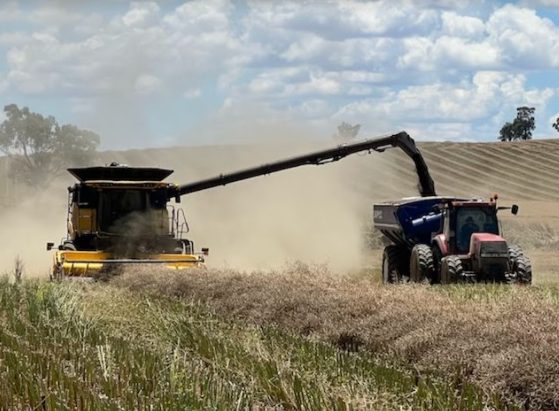
The warmer conditions this week means dust is being raised instead of machinery getting bogged as canola is harvested near Thuddungra. Photo: Paul Blake.
GrainCorp reported strong canola deliveries in Southern NSW in late November before rainfall put another dampener on operations, but agronomist Andrew Daley says Young, Harden and Cootamundra have already recorded outstanding canola yields.
Another bump in the paddock came when southern NSW farmers were initially informed GrainCorp would no longer be taking low-test weight canola, known as CNTW, at their sites, however several South West Slopes and Riverina sites now taking CNTW include Henty West, Milbrulong, Ardlethan, Bribbaree and Cunningar, with more to be announced in the coming days.
Mr Daley said shot and sprung wheat is another concern.
“I’ve heard some farmers are already seeing that, which is a bit annoying,” he said.
Sprout-damaged grain has a severe impact on end-product quality.
In late November, it was announced disaster assistance has been extended to Weddin Shire Council local government area to help it recover from damage caused by severe weather which has swept through the region since 9 November.
Weddin, with the town of Grenfell at its heart, has now joined Forbes and Cowra among Riverina local government areas to be supported through the Disaster Recovery Funding Arrangements (DFRA), a program jointly funded by the Federal Government and NSW Government.
Member for Riverina Michael McCormack said the hopes of many farmers in that area for a bumper grain harvest has sadly been washed away by floodwaters, with damage to fences and other infrastructure also reported.
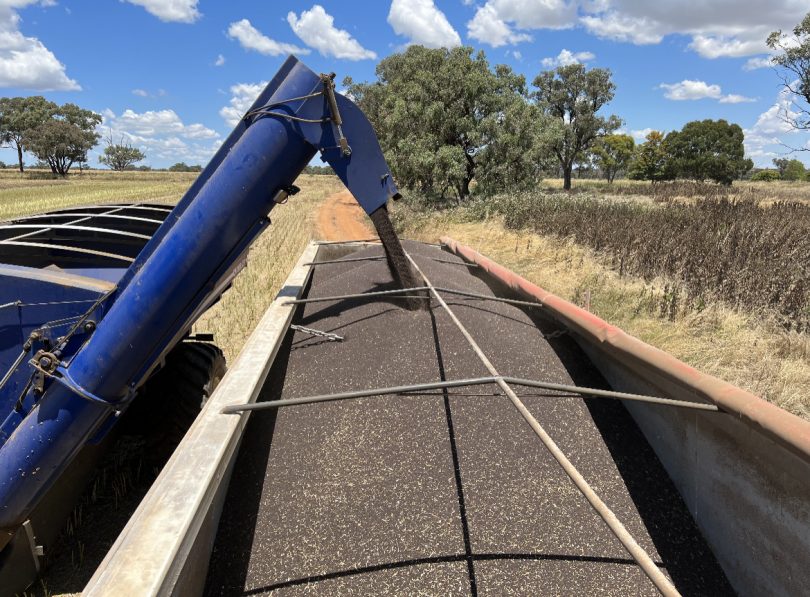
Several NSW South West Slopes and Riverina sites now taking lower grade canola include Henty West, Milbrulong, Ardlethan, Bribbaree and Cunningar, with more to be announced in the coming days. Photo: Paul Blake.
“Council is also adding up the costs of damage to roads and other community assets,” he said.
Mr McCormack welcomed the dry conditions during the past weekend, and the better odds of little rain for the rest of this week in the Riverina and Central West, but he said the flood crisis, especially in the Lachlan River valley, continued and he is getting regular updates on the situation, particularly in the Forbes Shire Council local government area.
The disaster assistance will help the Weddin, Forbes and Cowra councils cover the costs associated with the operational response and repairing damaged essential public assets.
Local residents will also receive support to get back on their feet, including grants to replace essential household contents, or repair to structural damage to homes.
Assistance available under the DRFA may include:
- Help for eligible people whose homes or belongings have been damaged (eligibility criteria applies).
- Support for affected local councils to help with the costs of cleaning up and restoring damaged essential public assets.
- Concessional interest rate loans for small businesses, primary producers and non-profit organisations.
- Freight subsidies for primary producers.
- Grants to eligible non-profit organisations.
For information on personal hardship and distress assistance, contact Service NSW on 13 77 88.
To apply for a concessional loan or grant, contact the NSW Rural Assistance Authority on 1800 678 593.
Original Article published by Edwina Mason on About Regional.







